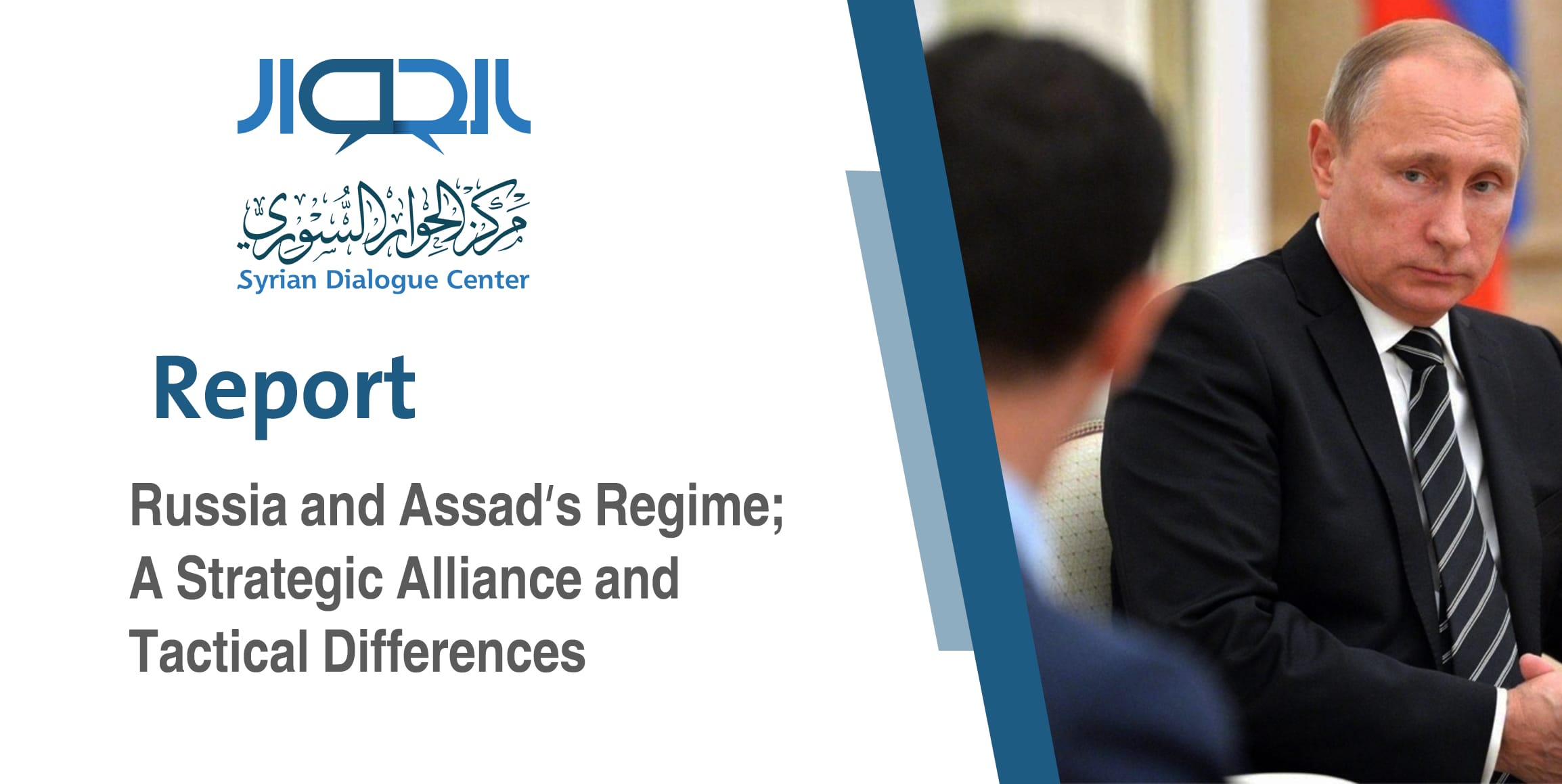
Russia and Assad’s Regime; A Strategic Alliance and Tactical Differences
About the factors affecting the Russian relations with Assad’s Regime in the light of fluctuations in the political and global arena
Abstract:
Russia aims through its investment in an alliance with Assad’s regime to reaffirm its role in the global arena, tying that to its ancient struggle with the west. Indeed, Russia has played a critical internationally recognised role in arranging a Syrian political solution, which is considered a big step towards its strategic goal of going back to multipolar international order and breaking the American hegemony, and that is through the Syrian door and using this issue as a venue to influence the regional and global equations.
Indeed, Russia gives the “political solution” in Syria great importance given that it categorizes it as a part of a broader strategy to use it as a bargaining chip in issues Russia finds more vital and important. Through its efforts in the issue, Russia has successfully subverted the political situation towards its narrative and vision for the final solution in Syria, taking advantage of leniency from the international community with regards to Russia supporting the regime’s manoeuvres in the “political solution” path.
Nevertheless, the relationship between Russia and Assad’s regime has seen some attraction and anxiety when it came to the implications and content of the “political solution” proposed according to the Russian vision; it seems that Assad’s regime supports the Russian vision and reaffirming its militaristic gains while translating them into an all-encompassing “political solution” on its very own special terms, achieving Russia’s economic and strategic goals. At the same time Assad’s regime is trying to manoeuvre in the margins available to it, trying to maintain positive relations with Russia by exploiting Syria’s natural resources to appease Russia, without making concessions in the “political solution”. On the global arena Assad’s regime is unashamedly and fully biased towards Russia, to the point of getting involved in Russia’s wars and military interventions through mercenaries as is the case in Ukraine. In the end, Assad’s regime was successful in tying the strategic goals of Russia in Syria and the region with the regime’s existence and its continued rule in Syria.
On the other hand, this might cause some anxiety in Russia, as this gives Assad’s regime more room to reaffirm its sovereignty away from Russia, especially given that Russia places some restrictions on the movement of Assad’s and Iranian troops in Syria with the pretext of Russia acting as an international mediator and guarantor.
Specifically, the United States, Turkey, Jordan, and “Israel”, nations that have agreements with Russia. Therefore, threatening Russia’s strategic goals in Syria through ruining its agreements or relations with the involved powers, or Assad’s regime allowing Iran to occupy sensitive locations in Syria on the expense of the Russians are red lines Russia grants the utmost importance.
This led to less pressure from Russia on Assad’s regime to make minor concessions in the “political solution”, namely the constitutional assembly. Russia even stopped pressuring Assad’s regime to distance itself from Iran according to the “Israeli” vision and some Arab states, especially after the latest development that followed Russia’s war on Ukraine.
This report sheds light on the dynamics of the relationship between Russia and Assad’s regime, it tries to predict the future of this relationship in the light of heightened political competitiveness and tension between the actors in the conflict, each trying to achieve their strategic goals and guarantees in Syria.
To read the complete paper (Arabic)
مؤسسة بحثية سورية تسعى إلى الإسهام في بناء الرؤى والمعارف بما يساعد السوريين على إنضاج حلول عملية لمواجهة التحديات الوطنية المشتركة وتحقيق التنمية المستدامة





